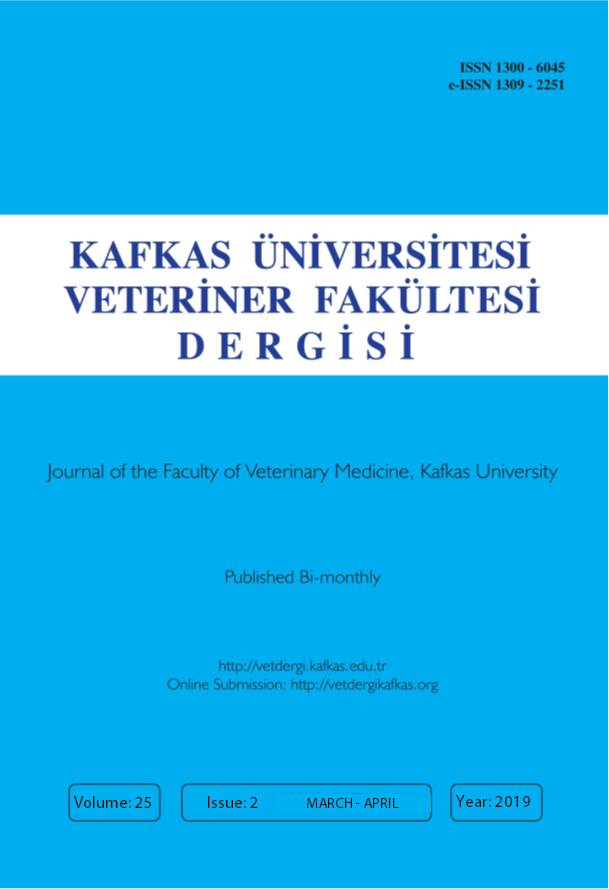
This journal is licensed under a Creative Commons Attribution-NonCommercial 4.0 International License
Kafkas Üniversitesi Veteriner Fakültesi Dergisi
2019 , Vol 25 , Issue 2
The Effects of Zinc Methionine Chelate and ZnSO4 on the Growth Performance and Immune Function of the Weaned Piglets and on IPEC-J2 Cell Immune Function
1College of Animal Science and Technology, Hunan Agricultural University, Changsha, CHINA2Key Laboratory of Agro-Ecological Processes in Subtropical Region, Hunan Research Center of Livestock & Poultry Sciences, South-Central Experimental Station of Animal Nutrition and Feed Science in Ministry of Agriculture, Institute of Subtropical Agriculture, the Chinese Academy of Sciences, Changsha, CHINA
3College of Animal Science and Technology, Yunnan Agricultural University, Kunming, CHINA
4College of Animal Science and Technology, Zhongkai University of Agriculture and Engineering, Guangzhou, CHINA DOI : 10.9775/kvfd.2018.20654 Zinc Methionine chelate (Met-Zn) shows a better palatability, stability, and bioactivity than traditional zinc preparations, therefore this study evaluated the effect on the growth performance and immunologic functions of the weaned piglets. Two in vivo tests were conducted: (I) crossbreeding piglets [duroc × (landrace × large white pigs)] were fed 80 mg/kg ZnSO4 or 20, 40, 60, or 80 mg/kg Met-Zn after the weaning on day 21.The content of serum globulin and lymphocyte transformation rate were measured on days 21, 35, 45 and 60; (II) another group of piglets weaned on day 28 days were fed 80 mg/kg ZnSO4 or 80 mg/kg Met-Zn after orally administrated of Escherichia coli. The levels of some immune factors in the small intestine were measured after the feeding for one month. An in vitro experiment studied the expression of some immune factors and zinc transporters in the porcine small intestinal epithelial cells (IPEC-J2) after treatments with ZnSO4+LPS and Met-Zn+LPS. Both Met-Zn and ZnSO4 increased the lymphocyte transformation rate and the content of serum globulin. But, Met-Zn showed better effect than ZnSO4 in improving the growth performance, particularly the average daily gain, after E. coli insults. With E. coli insults, Met-Zn promoted the expression of TNF-α and IL-6 in the anterior and middle segments of the small intestine respectively, but inhibited the expression of IL-8 in the middle segment. ZnSO4 promoted the expression of IL-6 in the posterior segment of the small intestine, but inhibited the expression of TNF-α in the middle segment. Both Met-Zn and ZnSO4 dose-dependently increased the expression levels of TNF-α, IL-6, and IL-8 in IPEC-J2 cells after the LPS stimulation. In summary, Met-Zn improved the growth performance of piglets and changed the immunologic functions. Keywords : Met-Zn, Piglets, Growth performance, Intestinal tract, Immunity










